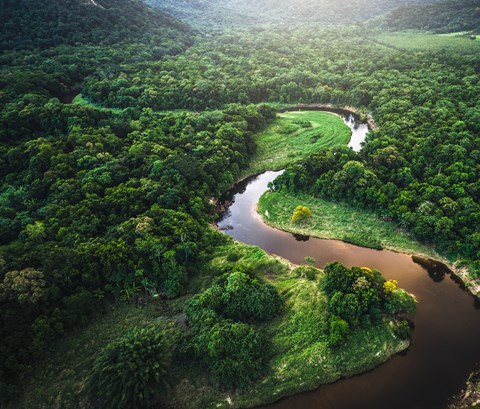
Explore our research
Earth and Environment
Acting today for tomorrow.
Earth and Environment
We are researching the issues that matter
The decisions we all make about our planet today will determine the landscape of tomorrow, which is why environmental health, climate change and sustainability are all key focusses for University of Leicester researchers. Our work in satellite observations of climate, remote sensing of changing land surface, and atmospheric composition, and are ranked first in the world for our research in the ‘Life on Land’ category of the UN Sustainable Development Goals.
Our satellite observation doesn’t stop there. Data from space has been instrumental in enabling our experts to analyse the impact of man-made pollutants on health. Air pollution alone is thought to be responsible for many thousands of deaths per year, which makes it a great cause of concern for those with heart disease, COPD and asthma in particular. With such concerning figures, understanding the impact of man-made pollutants on the environment is essential to improving the health of populations across the world.
We're proud to be awarded University of the year but this is more than an accolade, it's part of our DNA. Discover some of the reasons why the University of Leicester has been awarded University of the year.